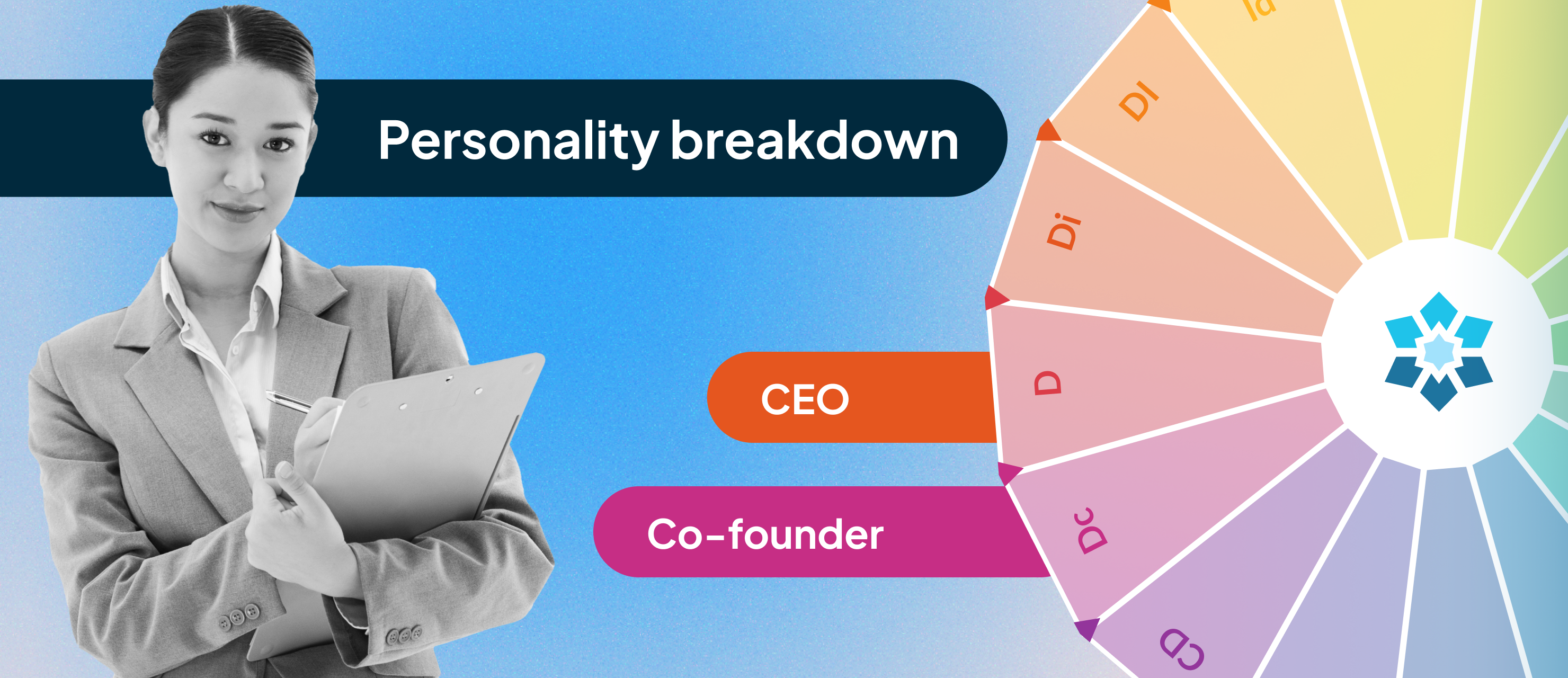
As a sales leader, motivating your sales team is no small task. The success of any organization heavily relies on the performance and productivity of its sales force. However, keeping your sales team motivated can be a constant challenge—especially during critical periods like end-of-quarter and mid-year reviews. However, motivating a diverse group of individuals with different personalities and motivational drivers can be a complex challenge. To overcome this hurdle, sales managers like yourself can leverage personality intelligence insights and gamification techniques to create a motivated and engaged sales team.
As a sales manager, it’s likely that you’ve faced various challenges when it comes to motivating your sales teams—especially during End-of-Quarter and Mid-Year Reviews. Some common hurdles include a lack of engagement, varying levels of motivation among team members, and difficulties in identifying effective communication strategies. These challenges can hinder team cohesion, productivity, and ultimately, the achievement of sales goals. But how can you overcome these obstacles and help your team stay motivated during the most critical periods? Crystal and SalesScreen can help.
Understanding Personality Types
When it comes to sales performance, understanding personality types can provide valuable insights into how your team members operate, communicate, and engage with prospects and clients. By understanding the personality types of your reps, you can unlock a range of benefits that directly impact their performance and overall sales success. Some of these benefits include:
- Enhanced communication
- Improved team dynamics
- Targeted coaching and development
One effective way to not only uncover your rep’s personality types but also learn how to best communicate with and motivate each rep is by using a personality intelligence platform like Crystal. Crystal uses the DISC personality model to classify people into four overarching behavioral categories:
Dominant (D)
Dominant individuals are likely to be direct, assertive, independent, and decisive. They are often intense competitors that thrive with ambitious goals and challenges, preferring action over analysis when they need to complete a task. D’s are also generally comfortable with conflict and may push harder than other more passive personality styles to assert their will and take control of a situation.
Influential (I)
Influential types tend to be confident, engaging, and extremely approachable. These individuals tend to love social settings, are often looking to expand their network and social circles and enjoy spending time with new people. They usually get excited to explore fresh ideas and begin new projects, and are likely to bounce around between what they are working on.
Steady (S)
Steady individuals tend to be naturally reserved people who look for like-minded, supportive, and loyal individuals in their relationships. They are often known for being sympathetic to others’
perspectives and maintaining calm, steady environments and situations. This steady quality makes an S excellent in situations that call for diplomatic skills and judgment of character.
Conscientious (C)
Conscientious individuals tend to be extremely analytical and gravitate towards process, structure, and rules. They are often skeptical, using logic to objectively make decisions, rather than being swayed by emotions. If the data informs new logic, C-types are capable of being flexible and changing their minds quickly. They are often inventors and seek thoughtful, accurate solutions to the exciting new problems and projects they are entrusted to.
How Personality Types Influence Sales Performance
Each personality type brings unique strengths and potential challenges to the sales environment. Understanding these influences can allow you to optimize team performance by leveraging individual strengths and understanding where some may need a boost of morale. Here are some examples of how personality types can impact sales performance:
- D-types may excel in high-pressure sales situations, but their assertiveness may require guidance in building rapport and empathy with clients.
- I-types can charm and persuade clients, but they may need assistance in staying organized and maintaining attention to detail.
- S-types may build strong customer relationships, but they might require encouragement to step out of their comfort zone and pursue new opportunities.
- C-types bring precision and accuracy to sales, but they may benefit from support in adapting to fast-paced and dynamic sales environments.
The Role of Personality Intelligence Insights in Sales Motivation
In the realm of sales motivation, personality intelligence insights have become a powerful tool for sales managers. By collecting and analyzing the personality intelligence of your team, you can gain valuable insights into what drives individual team members and develop personalized motivation strategies.
Crystal uses assessments and personality AI to gather information about your team and categorize them accordingly. Once personality intelligence is collected, you can analyze the insights to identify key drivers of motivation for each team member, enabling you to:
- Lead with empathy
- Inspire teammates with emotional intelligence
- Identify group strengths and blind spots
- Deliver feedback that resonates
Understanding individual personality traits, preferences, and behavioral patterns allows you to uncover what motivates and inspires your team. For instance, some reps may thrive on personal achievements and recognition, while others may be motivated by healthy competition and rewards. Collaborative environments and opportunities for learning and development may drive motivation for some, while others may find inspiration in contributing to team goals.
By collecting and analyzing personality intelligence using tools like Crystal, you can identify key drivers of motivation and develop personalized strategies that make a lasting impact. This tailored approach enhances engagement, productivity, and team dynamics—ultimately leading to a more successful sales force.
Creating Personalized Motivation Strategies
Tailoring motivation strategies to each individual on your team is the key to fostering a highly engaged and motivated sales team. By understanding what works for the different personality types within the DISC framework, you can create personalized motivation and feedback strategies that maximize each team member's potential.
You can cater your method of motivation and feedback to each type using the tips below:
Motivating D-types
For individuals with dominant personalities, motivation strategies should emphasize challenges, competition, and opportunities for personal achievement. Providing them with autonomy, setting ambitious targets, and recognizing their accomplishments can ignite their drive and determination.
When giving D-types feedback, be direct, concise, and focused on results. Highlighting their achievements and offering constructive guidance on areas for improvement can fuel their motivation and drive for success.
Motivating I-types
Influential personality types thrive on social interactions, recognition, and the ability to make an impact. Motivation strategies for influencers should focus on collaborative environments, public acknowledgment of their contributions, and the chance to build relationships and network with clients.
When giving I-types feedback, remember to stay positive. Provide specific praise for their social skills, ability to connect with clients, and the impact they have on team dynamics. Offering suggestions for further growth and channeling their energy can keep them motivated.
Motivating S-types
Steady individuals value stability, teamwork, and personal relationships. To motivate them, sales managers can emphasize the importance of a harmonious work environment, provide opportunities for teamwork and collaboration, and recognize their reliability and supportiveness.
When giving S-types feedback, emphasize their reliability, consistency, and commitment to teamwork. Recognizing their contributions and expressing gratitude for their support can inspire them to continue their dedicated efforts.
Motivating C-types
Conscientious individuals appreciate precision, accuracy, and intellectual stimulation. Sales managers can motivate them by offering opportunities for learning and development, encouraging their attention to detail, and recognizing their meticulous planning and problem-solving skills.
When giving C-types feedback, focus on the accuracy and quality of their work, offering suggestions for refinement and improvement. Recognizing their meticulousness and expertise can keep them motivated.
In general, it’s important to set realistic and achievable goals to ensure your team is set up for success.
Use Gamification to Inspire and Motivate Sales Teams
Gamification is exactly what it sounds like—making a game out of something that is, traditionally, not a game. More specifically, it is the application of game elements and mechanics in non-game contexts, such as sales environments. Gamification involves transforming sales activities and goals into game-like experiences, making them more enjoyable and engaging. It taps into people's natural desire for competition, achievement, and recognition. By incorporating challenges, rewards, leaderboards, and friendly competition into your sales process, gamification can boost sales team motivation and engagement—while also contributing to the overall success of your business.
How Gamification Can Be Used to Motivate Your Sales Team
Gamification taps into proven psychological drivers that motivate every player to win. Gamification platforms like SalesScreen give sales leaders like you the tools you need to harness the power of gamification and motivate your team to achieve success—especially during critical periods like End-of-Year and Mid-Year Reviews.
Below are some examples of how gamification can be used to motivate sales teams—all year round.
🥅 Gamification Helps Teams Set Clear Goals
Gamification allows sales managers to establish clear, specific goals that are aligned with the overall sales objectives. By breaking down larger targets into smaller milestones, salespeople can see their progress and feel a sense of accomplishment as they achieve each goal. Clear goals provide focus and direction, motivating team members to work towards tangible results.
🔥 Gamification Instills Healthy Competition in Sales Teams
Incorporating friendly competition through leaderboards can be a powerful motivator. Leaderboards display the performance rankings of individual team members or teams, creating a sense of urgency and encouraging healthy competition. Salespeople strive to climb the leaderboard, surpassing their colleagues and earning recognition for their achievements. The visibility of rankings fosters a sense of accountability and motivates individuals to push themselves further.
🌟 Gamification Utilizes Rewards and Incentives
Gamification introduces the concept of rewards and incentives to sales teams. By offering tangible rewards for meeting or exceeding sales targets, such as bonuses, prizes, or recognition programs, sales managers can create a strong motivation to perform at a high level. Rewards provide a sense of achievement and reinforce positive behaviors, driving salespeople to put in extra effort to attain the desired outcomes.
📈 Gamification Allows For Progress Tracking and Feedback
Gamified platforms often include features that allow salespeople to track their progress and receive real-time feedback. This feedback can come in the form of performance metrics, analytics, or visual indicators of progress toward goals. Regular updates and feedback help salespeople understand their strengths, identify areas for improvement, and make adjustments to their strategies. The ability to see their progress and receive immediate feedback enhances motivation by creating a sense of ownership and self-improvement.
🙌 Gamification Instills Comraderie and Team Collaboration
Gamification can foster teamwork and collaboration among sales team members. By introducing team-based challenges, collaborative projects, or shared goals, gamification encourages individuals to work together towards a common objective. This promotes knowledge sharing, mutual support, and a sense of camaraderie among team members. Collaborative elements of gamification help build a positive team culture, where individuals feel motivated not only by personal success but also by the collective achievements of the team.
🎯 Gamification Encourages Continuous Learning and Skill Development
Gamified platforms can offer opportunities for continuous learning and skill development. By incorporating training modules, quizzes, or interactive learning experiences, salespeople can acquire new knowledge and enhance their sales skills. The ability to learn and improve within the gamified environment motivates individuals to strive for mastery and personal growth. Salespeople are more engaged when they have access to resources that help them develop their skills and become more effective in their roles.
Final Thoughts on Motivating Sales Teams During Critical Periods
Motivation is not a one-size-fits-all approach. As a sales leader, you have to invest time in understanding your team members' personalities, preferences, and motivational drivers so you can adjust your tactics accordingly. By using personality intelligence insights and implementing gamification techniques, you will be able to create an environment that sparks enthusiasm, engagement, and productivity within your sales team.
Looking to better understand your employee base or gamify your sales strategies? Crystal Knows and SaleScreen can help. Download Crystal Knows for Chrome, or book your demo with SalesScreen’s gamified platform today.





.png?width=90&height=90&name=business-man%20(1).png)









